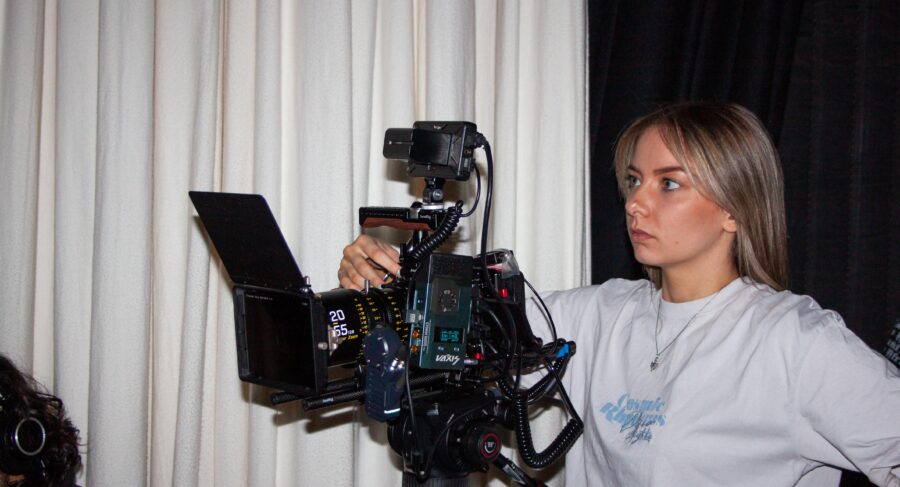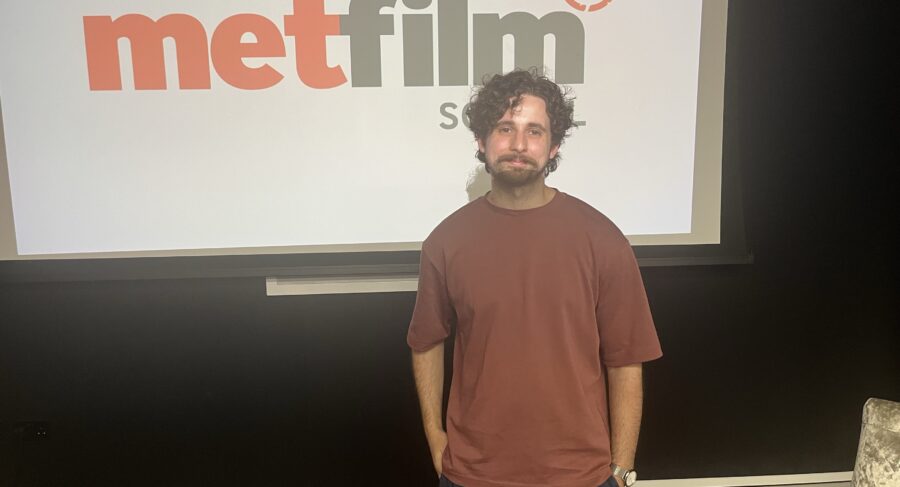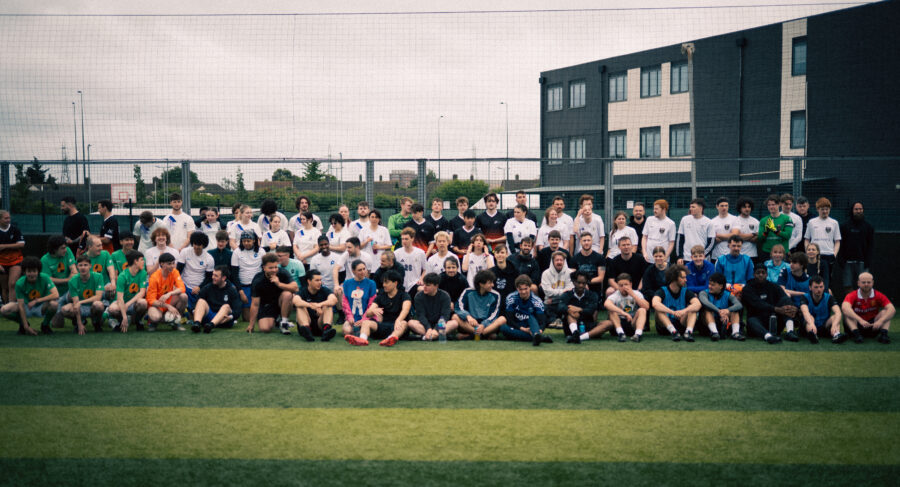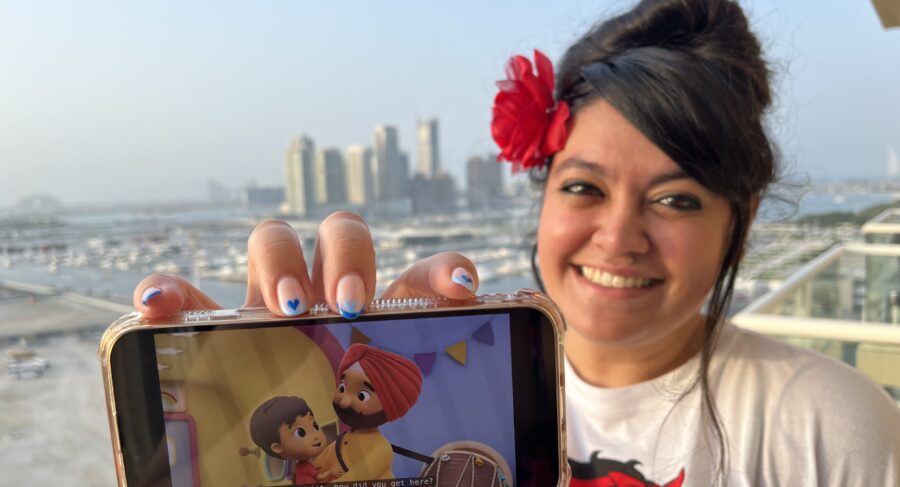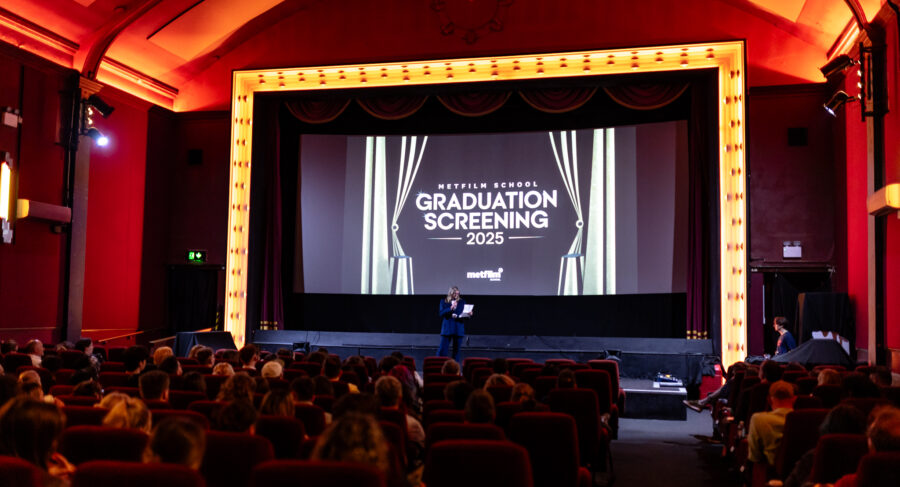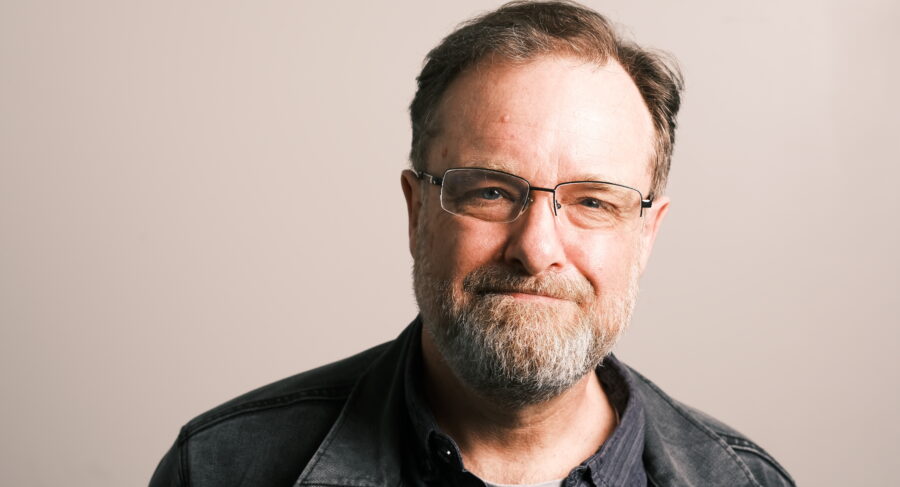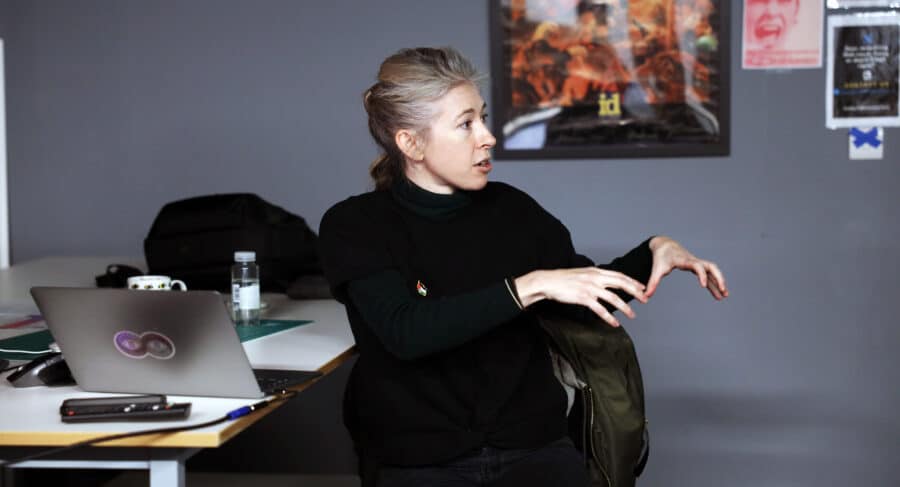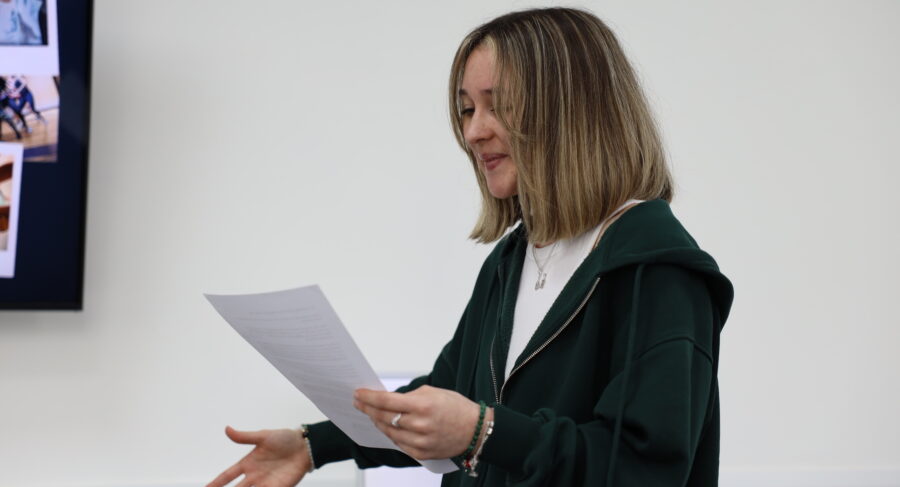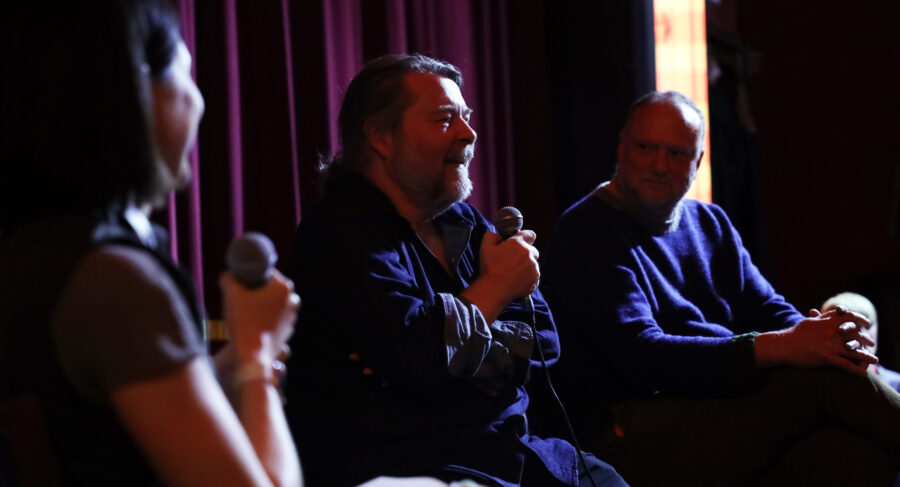Reel Women: Meet three of our female tutors teaching at MetFilm School’s ScreenSpace
By Danny Kelly
01 April 2021
Following on from our International Women’s Day blog in early March, we wanted to introduce you to three of our amazing female tutors helping inspire up-and-coming filmmakers on ScreenSpace courses at MetFilm School London.
Working with the University of West London, MetFilm School launched ScreenSpace in 2018, delivering two industry-led, practical undergraduate degree courses, immersed in creative industry practice. Students are taught alongside MetFilm School London students at the Ealing Studios campus and at the University of West London.
Talking about the launch, Deputy Director at MetFilm School London, Rachel Wood, says: “Funding is a major barrier to entering the screen industries, but because we’ve developed these two state-funded degrees, coming here now shouldn’t be any costlier than attending any university in England. Making ourselves and our expertise accessible to as wide an audience as possible will only serve to benefit the industry.”
Here are three inspiring women in film who teach across both MetFilm School and ScreenSpace…
REEL WOMEN: ELLA BENNETT
Ella Bennett is a film director from South East London with 10 years’ filmmaking experience and is a Ravensbourne, Brit School, NFTS and Film London Microwave alumni. She is a recipient of the John Brabourne Award and was selected for the BFI NETWORK x BAFTA Crew 2019.
Ella’s graduation short, Last Leg, won Best Short at the London Independent Film Festival 2016 and broadcasted on London Live twice, in partnership with the BFI Future Film Festival. Her most recent short, Dust, was made as part of the NFTS Directors Diversity Workshop, supported at the time by Barbara Broccoli, Michael G. Wilson, Screen Skills and EON Productions.
Discovering Filmmaking
“I decided whilst at secondary school that I was going to create a documentary about Southwark states. The decision came after the teaching assistant asked me, “What story has purpose to you?”. Over the summer holidays, I went around Southwark with a camera (that a community worker in my estate allowed me to use), and interviewed youth workers, the public, and residents who lived on council estates. My teacher and the class were surprised at the outcome, and I loved the feeling of seeing how people reacted to the visual story I had created. I wanted to feel it again!“
Teaching at ScreenSpace
“I know a few of the MetFilm School alumni and I know that it treasures meticulous emphasis on the craft – not ego, status or fame, but the craft. I really admire that and know that I can flourish and be open with my approach to teaching. So far, it’s been interesting working here. I’ve had opportunities to voice my opinion and be a part of the journey of ScreenSpace, which is still fairly new. MetFilm School has an openness to the students it accepts and a willingness to adapt to their needs and desires… and a less prescriptive nature to learning, which I find incredibly unique.”
Overcoming obstacles
“As a film director who identifies as a black cis millennial woman, I am often judged on others’ pre-conceptions of my natural ability as a director. I have come to find that the UK is very accustomed to hiring, recognising, and awarding white cis men for directing work. For example, in the UK there have only been six black women directors in the history of British cinema who have had a film released theatrically.
Ultimately the biggest challenges, for me have been the ‘getting ahead part’ and getting out of a loop of what feels like… being constantly forced to prove my ability. I work to overcome these by, firstly being vocal about these things being issues, and secondly, pursuing mentorships. Although brief, these have offered me great insight. I’ve also had valuable support from the John Brabourne Awards and Screen South, both are amazing charities.
It goes straight back to the boring indirect discriminatory question of, “are you able?” I now begin to throw that question in the air and ask, “if not me, then who?”.
Challenging Bias
“The role of a director in film is similar, in some respects to an Architect, mainly in the endurance, the trust and rapport that you must build as a lead creative on projects. It naturally takes years, especially when it comes to the qualifications and awards needed. What gender bias does is make the journey twice as long.
Things are changing because the business is changing. More women are fighting for opportunities in screen business venture and investment, which changes the landscape of who owns the production companies. However, investment in women founders within the screen industries isn’t happening as rapidly and as openly as it should be.
We need a neurodiverse representation of women and marginalised groups in the UK to become founders or aspire to become founders, to be believed in, just like their white male counterparts. Because I know for certain that these men did not come out of the womb with a film celluloid camera in one hand and a small loan of a million dollars in the other hand – someone invested in them, someone believed in them, someone believed that they had worth.”
Advice for young creatives
“My advice to anyone considering a career in the screen industries is to never limit the kind of person you are and the kind of team you follow. The world is your oyster, so recognise the stories you can make international, and to look inward before you do.”
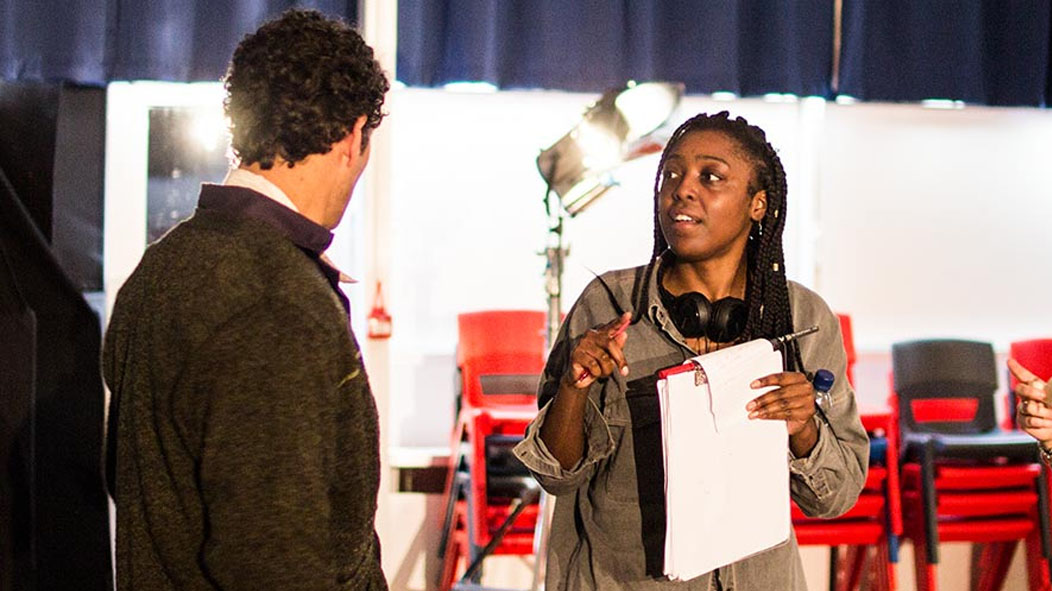
REEL WOMEN: EMMA LINDLEY
Emma Lindley is an award-winning film and television director and producer based in West London. Her films have been broadcast on the BBC, ITV and Channel 4 in the UK and sold to TV networks around the world. Her long list of drama credits include Holby City, Coronation Street and the multi-award-winning 90’s comedy series, My Parents are Aliens.
Early Inspirations
“My Dad was an editor, and my mum was an actress so it may have been inevitable that I would end up working in the screen industry. I also read a lot of books as a child, was glued to the TV in my teens, before joining a local drama group and discovering acting and directing. I directed plays, films and radio at university and then worked for a documentary company before going back to film school to specialise in film directing.”
The joys of teaching filmmaking
“MetFilm School is a community of filmmakers who enjoy teaching and sharing what they’ve learned with people making their first films. That’s why I keep coming back. I love hearing people talk about their ideas, helping them develop their story and find their voice as a filmmaker. I also love working with student actors on camera.“
Representation within the Industry
“I have always been respected as a director on the films and television series I have made but there is still a proven shortfall in representation for female directors, particularly on higher budget film and TV series. These days, I don’t think there are fewer women than men working in the screen industries, but statistically, there seem to be fewer opportunities for them to progress, especially on big-budget productions.
“As many women graduate from film schools as men, and they are equally qualified to do the job, so a lack of training isn’t the issue, it’s about making hiring lists more inclusive and creating career development opportunities at higher levels.”
Advice for aspiring female directors
“I do think things are changing for the better – there has been more interest in female directors recently and some useful industry initiatives aimed at increasing opportunities. To any new director, I’d say be yourself, make films you care about, but also be open to shooting something completely unexpected that comes your way because that’s how you often make your best work!”
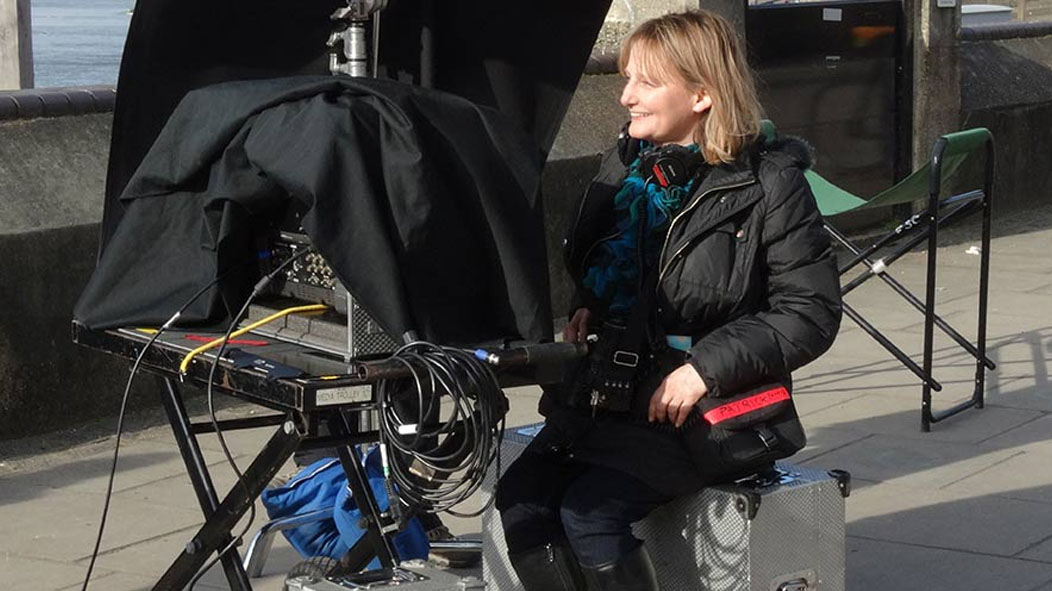
REEL WOMEN: Deirdre Rairie Mulcahy
Deirdre Mulcahy is relatively new to MetFilm School and delivers camera skills lectures for ScreenSpace. After 12 years working as a senior camera trainer at the BBC Academy, she continues connecting with young storytellers of the future by delivering bespoke video content and media production training.
Career Reflections
“I cannot say that over 30 years it was easy as a woman to gain the respect and skills needed to do the job; it was always assumed it was a male role, especially in News and current affairs where I worked. The great thing is I managed to follow a career in cameras which I loved, ending up teaching the role, which I’ve really loved. This gave me the opportunity to travel to extraordinary places that I never would have visited normally; Myanmar, Afghanistan, most parts of Africa, Uzbekistan and all of the Baltic states and Russia.”
Sharing experience at MetFilm School
“My journey from White City to MetFilm School started when I was asked to come along and meet ScreenSpace’s Head of School, Dr Lisette Johnston, to discuss whether I could be involved in this fantastic new partnership that MetFilm School had launched. Immediately I was hooked. I loved the vibe and also the irony that it was the ex-BBC Ealing Studios (that bought a big smile to my face as I had worked there previously). I just felt that everyone who worked there had a very different approach to the normal academia that I had previously been involved with. I love to see all this fabulous talent coming through and knowing they appreciate the real-world, hands-on, practical style of teaching that comes from years of experience on location.”
Advice for female filmmakers
“The only advice I can offer to females entering the screen industries is to follow your heart; stay strong; always say yes to any work, as you never know where it might take you and fight for the same pay and conditions as men. I think this is very difficult to do when you’re younger, but it’s at this point you will make your mark. Understand your self-worth and value.”
Passionate about pursuing a career in the screen industry? Find out more about our courses at ScreenSpace.

